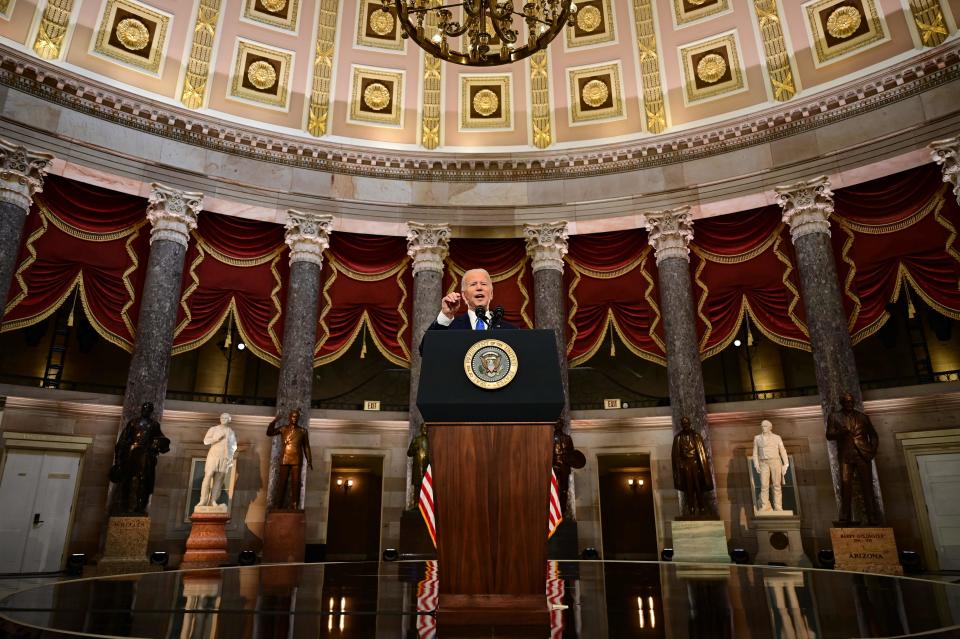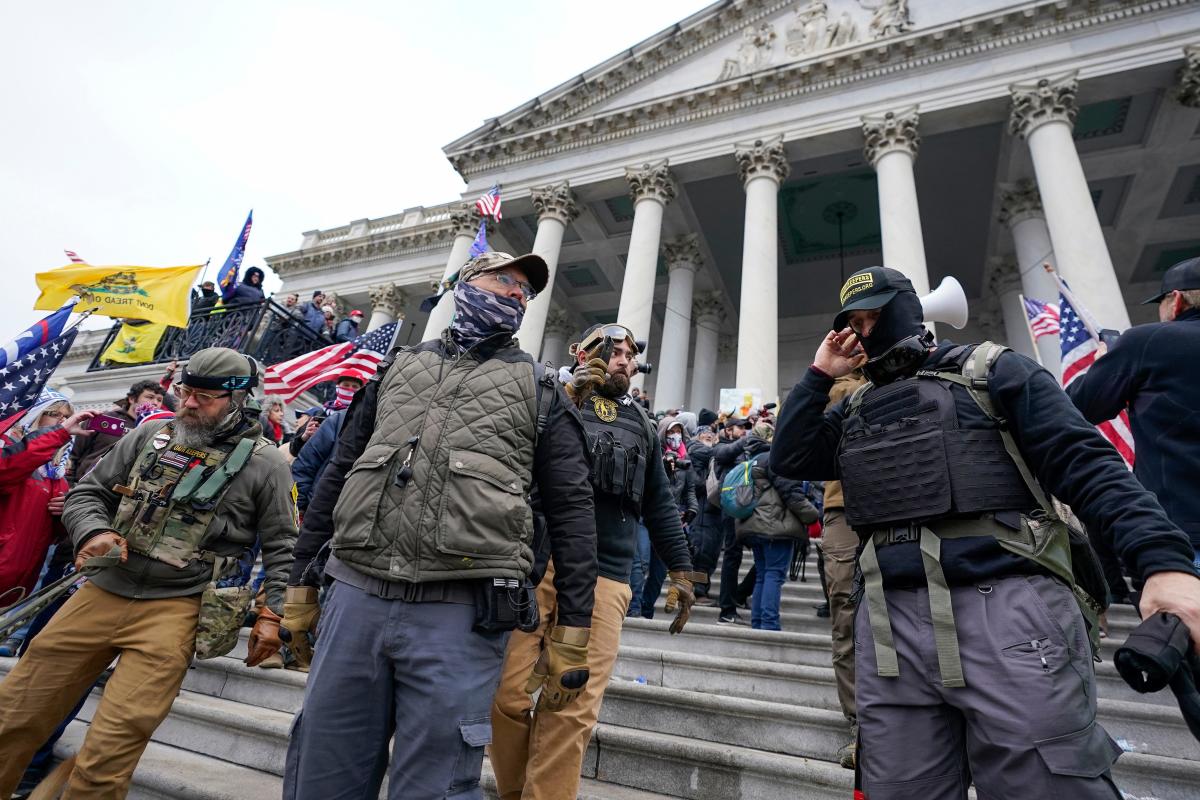WASHINGTON − Three men involved in the Jan. 6 attack on the U.S. Capitol are asking the Supreme Court to wipe out part of their indictment − and the possibility of an extra 20 years in prison − in the first criminal cases involving the 2021 insurrection to reach the nation’s highest court.
If the justices agree to hear the appeals, the decisions could ultimately affect part of a federal indictment lodged against former President Donald Trump for his effort to overturn the 2020 election − as well as hundreds of others charged in the deadly riot that unfolded across the street from the Supreme Court more than two years ago.
Edward Lang, Joseph Fischer and Garret Miller claim prosecutors overstepped their authority by charging them with a federal prohibition on obstructing “official proceedings,” a law approved in 2002 in response to the Enron financial meltdown. Lang documented on social media his participation in the Jan. 6 attack, and Miller gained attention after the riot for threatening Rep. Alexandria Ocasio-Cortez, D-N.Y.
More than 200 people have been charged with violating that same obstruction law in connection with Jan. 6, according to the Justice Department. One of them is the former president himself: Trump is facing the charge as part of the grand jury indictment handed up last month following an investigation by special counsel Jack Smith.
A ruling from the Supreme Court in favor of the defendants would undermine those charges in the other cases, including Trump’s.
‘Crushing dissent’ or prosecuting a mob?
The Supreme Court has dipped into some legal questions surrounding the Jan. 6 attack.
Last year, the justices refused to block a House committee investigating the attack from obtaining Trump administration documents. Months later, the court turned away an emergency appeal from the former chairwoman of the Arizona Republican Party, Kelli Ward, who was fighting a subpoena for phone records from that committee.
But the new cases are the first involving defendants fighting criminal charges.
The Justice Department says that the counting of electoral votes − interrupted as lawmakers fled for their safety and police battled with rioters − qualifies as an “official proceeding.” The law, prosecutors say, would cover someone lying to a grand jury or “burning a building to conceal the bodies” of murder victims.
“It also includes storming the Capitol to derail a congressional proceeding,” the department told a federal appeals court last year.
But the defendants say the provision was meant to stop people – like those involved with the Enron scandal − from tampering with evidence. Fischer described the crime at issue in the cases as an “anti-shredding” law in a court document. Their actions on Jan. 6, the lawyers say, had nothing to do with that.
What’s more, they argue, allowing prosecutors to press the obstruction charge could lead to a slippery slope of prosecutions for less violent interruptions.
“It is no overstatement to say the future of the First Amendment hangs in the balance,” attorneys for Lang told the Supreme Court in his appeal. A law “intended to combat financial fraud,” they wrote, “has been transformed into a blatant political instrument to crush dissent.”
The Justice Department did not respond to a request for comment.
Lang, Miller and Fischer are not asking the Supreme Court to toss the other charges they face.

Most courts have backed prosecutors. Will Supreme Court agree?
A U.S. District Court judge agreed with the defendants, ruling that the law required them to have taken some action involving evidence to be charged under the Enron-era provision. Judge Carl Nichols, a Trump nominee, stood alone in that assessment: Fourteen other district court judges in Washington, D.C., agreed with the Justice Department’s reading of the law.
A divided appeals court in Washington reversed that ruling in April, teeing up the Supreme Court appeal. The 2-1 majority included one judge appointed by President Joe Biden and one by Trump.
Several experts have predicted the high court is unlikely to take up the cases – at least for now. That’s partly because appeals courts like to give deference to grand juries when it comes to criminal charges and partly because there has been little disagreement so far about how to interpret the law among appeals courts.
“What they’re doing is what any defense lawyer in their position would be doing,” said Craig Trocino, a University of Miami law professor. “That doesn’t that they’re going to win or that they’re legally correct.”
The argument Lang and Miller raise rests in part on what, exactly, lawmakers meant when they smooshed a provision banning the destruction of a document “with the intent to impair” an official proceeding up against another provision that bars obstructing or impeding “any official proceeding.”
In one sense, their case turns on how much the two provisions are connected to each other.
“When you look at a statute like this, for these purposes, you use the words’ ordinary meanings,” Trocino said. “I don’t believe that that’s so outrageously vague as to offend due process under these circumstances.”
The Supreme Court will consider whether to grant the cases later this year.

This article originally appeared on USA TODAY: Supreme Court to weigh cases on Jan. 6 attack that could affect Trump








